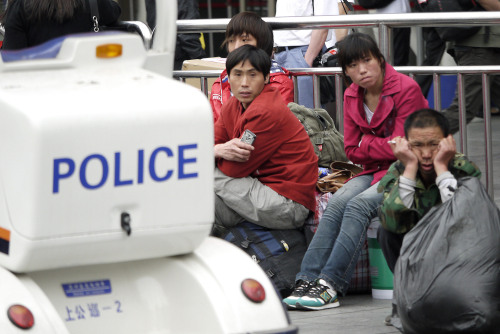 |
|
Migrant workers sit near a police electric car patrolling around Shanghai train station on Sunday, May 22, 2011 in Shanghai, China.(AP-Yonhap News)
|
As the economic gap between North and South Korea widens, more North Koreans think that unification led by South Korea would make their lives better, Radio Free Asia reported.
North Koreans are also well aware of the economic prosperity the South has established and as they suffer from economic hardship, they begin to question the consequences of unification led by communist North Korea.
Unification has been the word of hope for the two Koreas for a long time as well expressed in the song “Our wish is unification.” But, “mentioning the word can cause harm these days in North Korea,” said a Korean-Chinese businessman, identified by surname Oh, who invests in North Korea.
“If unification is mentioned in the wrong context, the person may end up being a political prisoner,” Oh said, noting that unification can be understood as wishing for North Korea to collapse soon.
A Chinese living in South Hamgyeong Province in North Korea with the surname Goo said some people who are tired of poverty even wish any country, whether South Korea or the United States, would conquer their country.
And more people who used to call South Korea as “Nam Joseon,” which North Korea use to refer to South Korea, now say “Hanguk,” a short term for the Republic of Korea.
Goo added in the report that some people are worried about how they will manage living for the next 50 years when the North Korean heir-apparent Kim Jong-un becomes the leader of their country. Some people even said they would likely not be able to live in a good country during their lifetime.
South Korea called for a special tax to cover Korean unification last year, with president Lee Myung-bak emphasizing “our duty to start thinking about real and substantive ways to prepare for reunification such as the adoption of a unification tax.”
By Lee Woo-young (wylee@heraldm.com)